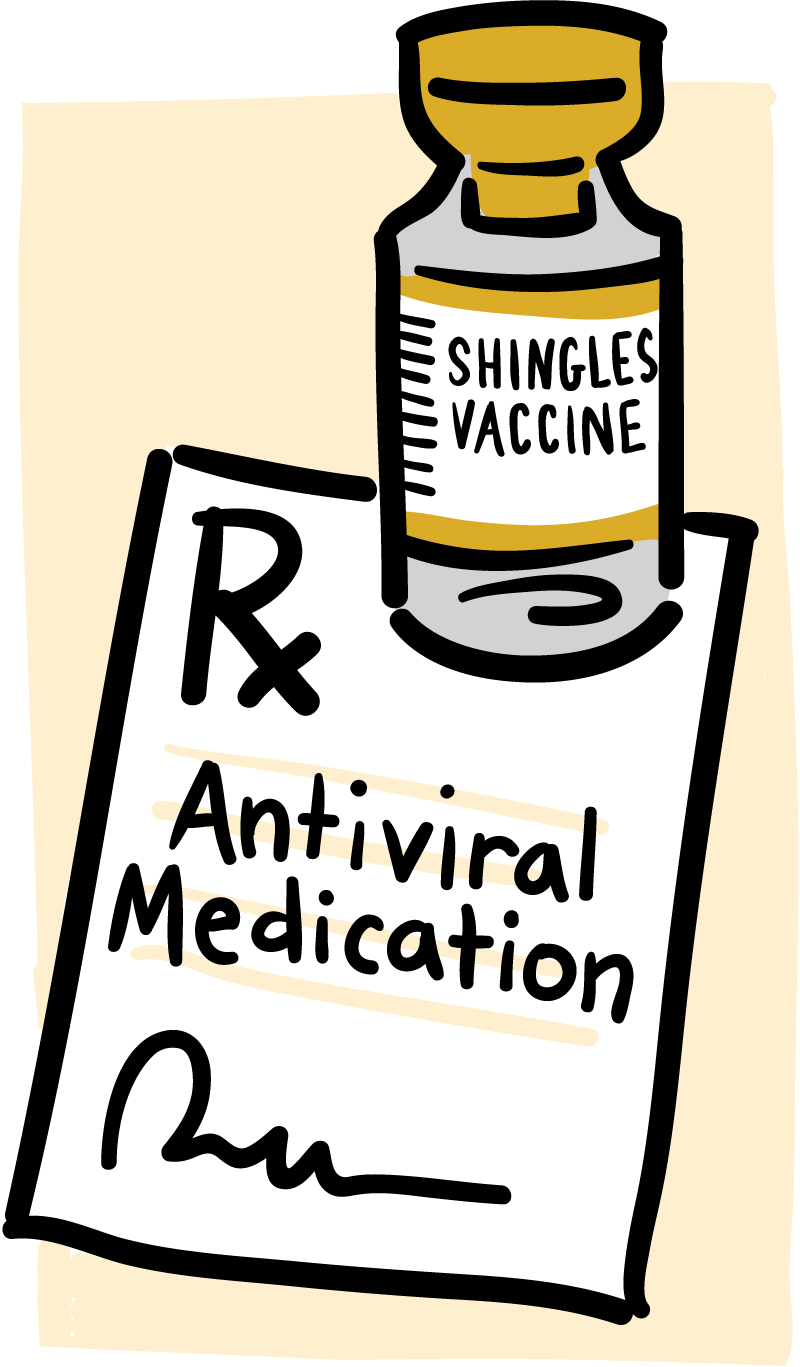The Sting of Shingles
Vaccine, Treatments Reduce Risks

If you’ve ever had chickenpox, you may be at risk for a painful disease called shingles as you grow older. Shingles is a sometimes-agonizing skin rash and nerve disease that’s caused by a virus. Fortunately, you can take steps to prevent shingles or ease its serious effects.
Shingles usually affects adults after age 50, although it can strike at any age. “In the U.S., the incidence of shingles is actually increasing,” says Dr. Jeffrey Cohen, an infectious disease researcher at NIH. “If you live to be 85 years old, you have a 50% chance of getting shingles.”
Shingles is caused by the varicella-zoster virus—the same virus that causes chickenpox. Once you’ve had chickenpox, the virus stays with you for life, hidden and inactive in your nerve cells. Your The system that protects your body from viruses and other microscopic threats. immune system helps keep chickenpox from returning. But later in life, the virus can re-emerge and cause shingles (also known as herpes zoster).
You can’t “catch” shingles from someone else. But it is possible for a person with a blistery shingles rash to pass on the varicella-zoster virus to someone who’s never had chickenpox or a chickenpox vaccine. If that happens, the other person would get chickenpox, not shingles.
Shingles may cause skin sensitivity ranging from mild itching to severe pain along with burning, tingling, or numbness. A rash with fluid-filled blisters nearly always appears on just one side of the body or face. The rash usually lasts for 7 to 10 days. Other symptoms may include chills, fever, upset stomach, and headache.
Shingles can lead to some serious problems. If it appears on your face, it can affect your hearing and vision. It may cause lasting eye damage or blindness. After the rash fades, the pain may linger for months or years, especially in older people. This lasting pain, called post-herpetic neuralgia, affects nearly 1 out of every 3 older people with shingles. The pain can be so severe that even the gentlest touch or breeze can feel excruciating.
To help prevent these problems, see your doctor at the first sign of shingles. Early treatment can shorten the length of infection and reduce the risk of serious complications.
To treat shingles, your doctor may prescribe antiviral drugs to help fight the varicella-zoster virus. Steroids can lessen pain and shorten the time you’re sick. Other types of medicines can also relieve pain.
Fortunately, a vaccine called Zostavax can help prevent shingles or decrease its severity. It’s been approved by the U.S. Food and Drug Administration (FDA) for people ages 50 and older. “The vaccine can prevent shingles and reduce the risk of post-herpetic neuralgia, which can be very debilitating,” Cohen says.
The shingles vaccine is available by prescription. Unfortunately, the vaccine is expensive, and the costs aren’t always covered by health insurance. If you’re considering the shingles vaccine, be sure to discuss the pros and cons of the vaccine with your doctor, and check with your insurance provider about coverage.
Now that people have been receiving the shingles vaccine for several years, researchers are evaluating whether booster shots might be appropriate. Scientists are also studying post-herpetic neuralgia to find better ways to treat this complication from shingles.
NIH Office of Communications and Public Liaison
Health and Science Publications Branch
Building 31, Room 5B52
Bethesda, MD 20892-2094
Contact Us:
nihnewsinhealth@od.nih.gov
Phone: 301-451-8224
Share Our Materials: Reprint our articles and illustrations in your own publication. Our material is not copyrighted. Please acknowledge NIH News in Health as the source and send us a copy.
For more consumer health news and information, visit health.nih.gov.
For wellness toolkits, visit www.nih.gov/wellnesstoolkits.




